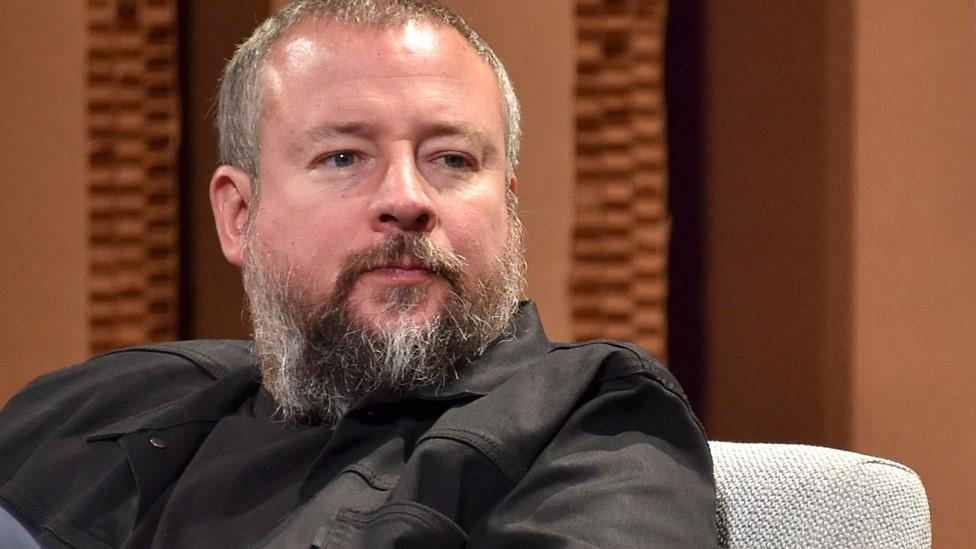Vice head: Prepare for media bloodbath
- Published

Vice boss Shane Smith criticised mainstream media companies for failing to address the needs of younger audiences
This year will be a "bloodbath" in the world of media, according to the head of one of the fastest growing digital media businesses, Vice.
The youth brand that began as a magazine in Canada is now a TV and online video business worth $4.5bn (£3.4bn).
In his keynote speech to the Edinburgh TV Festival, Shane Smith said media empires are about to begin a huge bout of takeover activity.
Listing a series of rumours about prospective takeovers, he said he thought Fox would bid again for Time Warner and that Apple had got its eyes on both Time Warner and Netflix.
The big five media businesses in America are, he says, about to become the big three.
In a briefing before the lecture, he also criticised mainstream media companies for failing to address the needs of younger audiences.
Smith said the need to drive ratings had led to "collusion" with certain politicians such as Donald Trump.
He also voiced fears about the future for many new media businesses, saying about 30% face either being taken over or going under.
'Going to be ugly'
The driving force for this is a shift in advertising - ad blocking on mobile phones and declining online advertising rates are, along with a shift in Facebook's algorithms towards personal content, making it harder for media firms to make a profit.
He said that was one reason why Vice - which has received investments from both Disney and News Corporation - is moving into television.
But, he said, his main point was wider: "There is a revolution going on in media. And it's scary, and it's fast, and it's going to be ugly.
"Baby boomers have had a stranglehold on media and advertising for a generation. That stranglehold is finally being broken by a highly educated, ethnically diverse, global-thinking, hard-to-reach generation - and media is having a hard time adapting to this rapid change."
He added if firms want to attract younger audiences, "you have to hand it over to the kids".
And when it comes to news and media, a new generation has to be given money to make programmes that appeal.
Smith said the view that the young had no interest in news was wrong - they just "don't like the way it has been portrayed up until now".
However, he said, the established media businesses are facing the changes in the way the music industry first treated online file-sharing by trying to protect their old business model.
"Now, we all know that a lot of media is derivative - we just make what has been successful before.
"The reason why all this chaos in media is happening is because the new audience, the new purchasing power of Generation Y realises that vapid and vacuous… isn't going to get us to where we need to go socially and economically."

Follow us on Twitter @BBCNewsEnts, external, on Instagram, external, or if you have a story suggestion email entertainment.news@bbc.co.uk, external.